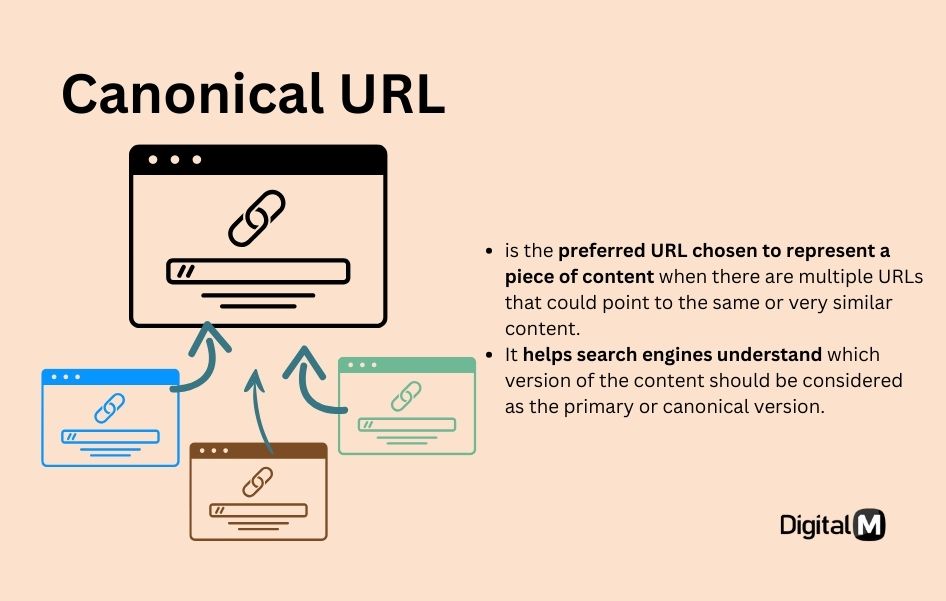Canonical URL
A “canonical URL” is a technical concept in web development and search engine optimization (SEO). It is a designated URL chosen among several possible URLs for the same content to indicate the preferred or canonical version. The use of canonical URLs helps search engines understand which version of a page is the authoritative or primary one.
Canonical URL:
A canonical URL is the preferred URL chosen to represent a piece of content when there are multiple URLs that could point to the same or very similar content. It helps search engines understand which version of the content should be considered as the primary or canonical version.
Imagine you have the same article accessible through different URLs, like “www.example.com/article” and “www.example.com/blog/article.” The canonical URL is like picking the main address that represents the article, ensuring search engines know which one to prioritize.

Key Points:
Duplicate Content: Canonical URLs are especially useful when there’s a potential for duplicate content issues, which can arise when the same content is accessible through different URLs.
Also read: The SEO Consequences of Duplicate Content: How it Can Impact Your Website.
SEO Benefit: Using canonical URLs can help consolidate the SEO value of similar or identical content, preventing it from being diluted across multiple URLs.
Avoiding Penalties: Search engines may penalize websites for having duplicate content. Canonicalization helps avoid these penalties by specifying the preferred version.
Example:
Suppose you have an e-commerce website, and a product page is accessible through multiple URLs, such as “/products/item-123” and “/category/electronics/item-123.” By setting a canonical URL (e.g., “/products/item-123”) in the HTML of the page, you’re signaling to search engines that this is the primary version.
In summary, a canonical URL is a way to specify the preferred version of content when multiple URLs could point to the same or very similar information. It’s a tool used in SEO to ensure that search engines understand the authoritative version of a page and prevent issues related to duplicate content.

